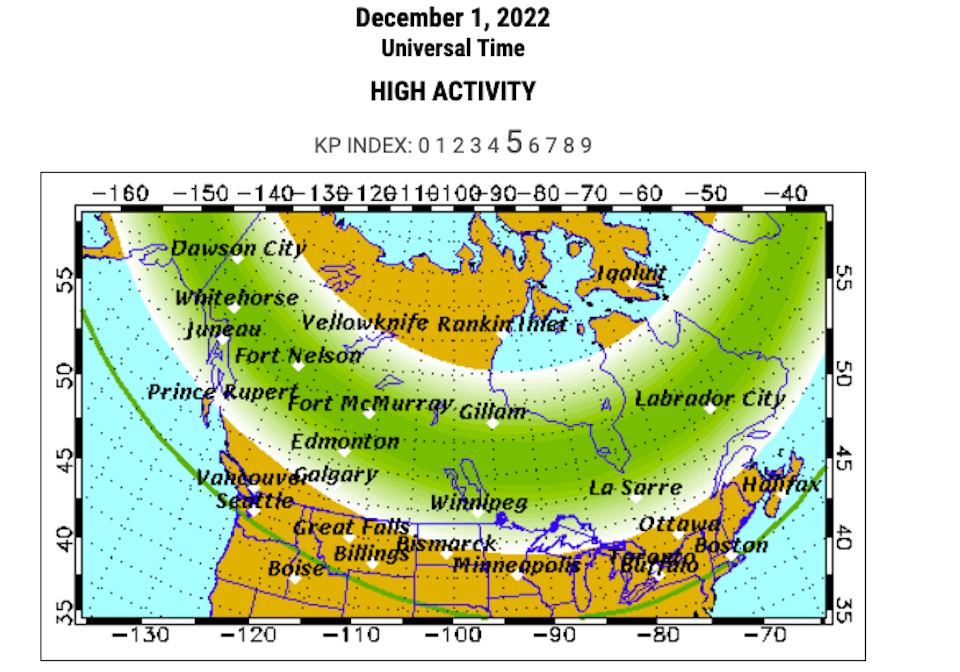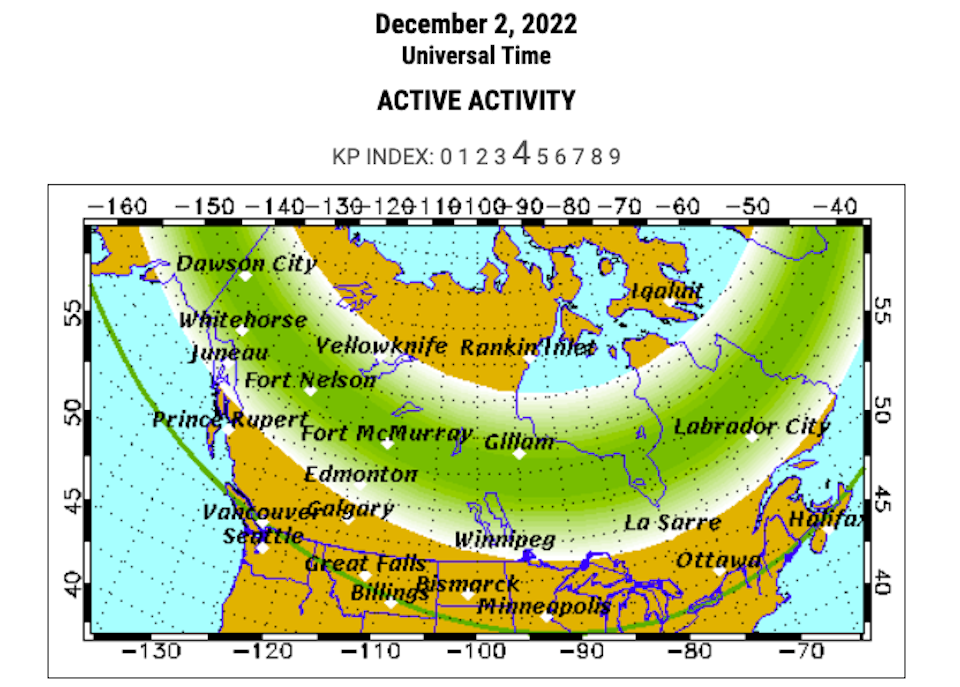Metro Vancouverites have a chance to view the northern lights following a snowstorm that caused widespread commuter chaos in the region.
The National Oceanic and Atmospheric Administration (NOAA)'s Space Weather Prediction Center has issued a G1 (Minor) geomagnetic storm warning for Thursday, Dec. 1. There is a slight chance for R1 to R2 (Minor) radio blackouts from Thursday through Saturday.
While Environment Canada calls for plunging temperatures overnight Thursday, skies are expected to be clear.
According to the University of Alaska Fairbanks (UAF), auroral activity will be highly active on Dec. 1, with displays possible overhead from Inuvik to Thunder Bay, Ontario, and down to cities south of the border including Seattle, Chicago, and Boston. That means folks in Metro Vancouver will have the possibility to observe the green glow.
The university's online aurora monitor map shows what regions the aurora's green glow will likely reach, as well as other areas where there is less of a possibility. Additionally, there is a brief description below the map of the aurora activity on that particular day. You can switch to other days to see the forecast, too.
Keep in mind, however, that the aurora might not appear a vibrant green to your naked eye. Instead, you might observe a greyish formation in the sky.

While the green glow doesn't extend as far down the map of North America, the university says auroral activity will be highly active on Dec. 2, providing another viewing opportunity for residents of the Lower Mainland.

Everything B.C. residents need to know about viewing the Northern Lights
Want to view the vibrant, dancing lights in all of their sublime, celestial glory?
Light pollution in large cities makes the aurora borealis difficult to observe, but not impossible, given the right circumstances. That said, your best bet for viewing that hypnotic green glow is up north or outside of the city.
Since clear sky and darkness are both essential to see aurora, the best time is dictated by the weather and by the sunrise and sunset times.
The moon is also very bright and can make it more difficult to view the aurora, so lunar cycles should be taken into account. Photographing the colourful manifestation may also allow you to see them more clearly, as well as produce their vibrant colour.
- Find out more northern lights information and viewing tips with our comprehensive guide.


